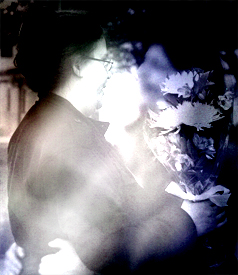Truthout is an indispensable resource for activists, movement leaders and workers everywhere. Please make this work possible with a quick donation.
On Wednesday, a conservative majority of the Supreme Court overturned a ruling made by a federal trial judge that would have allowed limited television coverage of a trial that will decide the fate of California’s Proposition 8. The trial, which is currently proceeding in San Francisco, is one of the most significant civil rights cases of our time. The plaintiffs are seeking to overturn a ballot initiative that makes same-sex marriage illegal in California.
It was unusual that the Supreme Court even decided to hear this case. The high court takes very few cases. It generally decides issues about which the state or federal courts are in conflict or cases that raise important questions of federal law. Yet relying on the Supreme Court’s “supervisory power” over the lower courts, the five conservative justices – Roberts, Scalia, Thomas, Alito and Kennedy – joined in an unsigned 17-page decision and chided Chief Judge Vaughn Walker for seeking to broadcast the trial without a sufficient notice period for public comment.
Justice Breyer wrote in the dissent joined by Justices Stevens, Ginsburg and Sotomayor that he could find no other case in which the Supreme Court had intervened in the procedural aspects of local judicial administration. Indeed, Breyer cited a case in which Scalia wrote, “I do not see the basis for any direct authority to supervise lower courts.”
Moreover, in the comment period that Walker did allow, he received 138,574 comments, and all but 32 favored transmitting the proceedings.
The majority concluded that the same-sex marriage opponents would suffer “irreparable harm” if the trial were broadcast to five other federal courts around the country. But all the witnesses who allegedly might be intimidated by the camera were experts or Prop 8 advocates who had already appeared on television or the Internet during the campaign.
No one presented empirical data to establish that the mere presence of cameras would negatively impact the judicial process, Breyer wrote. He cited a book that I authored with veteran broadcast journalist David Dow, Cameras in the Courtroom: Television and the Pursuit of Justice. It describes studies that found no harm from the camera, and one which found that witnesses “who faced an obvious camera, provided answers that were more correct, lengthier and more detailed.”
The five justices who denied camera coverage noted at the outset that they would not express “any view on whether [federal] trials should be broadcast.” Toward the end of their decision, however, they stated that since the trial judge intended to broadcast witness testimony, “[t]his case is therefore not a good one for a pilot program.”
In my opinion, it is no accident that the five majority justices are the conservatives who, in all likelihood, oppose same-sex marriage. Why don’t those who oppose same-sex marriage want people to see this trial?
Perhaps they are mindful of the sympathy engendered by televised images of another civil rights struggle. “It was hard for people watching at home not to take sides,” David Halberstam wrote about Little Rock in The Fifties. “There they were, sitting in their living rooms in front of their own television sets watching orderly black children behaving with great dignity, trying to obtain nothing more than a decent education, the most elemental of American birthrights, yet being assaulted by a vicious mob of poor whites.”
The conservative justices may think that televising this trial will have the same effect on the public. Witnesses are describing their love for each other in deeply emotional terms. Religious fundamentalists who oppose them will testify about their interpretation of scripture. Gay marriage is one of the hot button issues of our time. Passions run high on both sides. This is not a jury trial in which jurors might be affected by the camera or a criminal case where the life or liberty of the defendant is at stake.
In spite of what the conservative majority claims, the professional witnesses are not likely to be cowed by the camera. Modern broadcast technology would allow the telecast without affecting the proceedings in the courtroom.
There is overwhelming public interest in this case. It will affect the daily lives of millions of people. The decision denying limited broadcast coverage at this point effectively eliminates any possibility that it will be allowed before the trial is over. The conservative judges are using procedural excuses to push this critical issue back into the closet.
Holding Trump accountable for his illegal war on Iran
The devastating American and Israeli attacks have killed hundreds of Iranians, and the death toll continues to rise.
As independent media, what we do next matters a lot. It’s up to us to report the truth, demand accountability, and reckon with the consequences of U.S. militarism at this cataclysmic historical moment.
Trump may be an authoritarian, but he is not entirely invulnerable, nor are the elected officials who have given him pass after pass. We cannot let him believe for a second longer that he can get away with something this wildly illegal or recklessly dangerous without accountability.
We ask for your support as we carry out our media resistance to unchecked militarism. Please make a tax-deductible one-time or monthly donation to Truthout.
